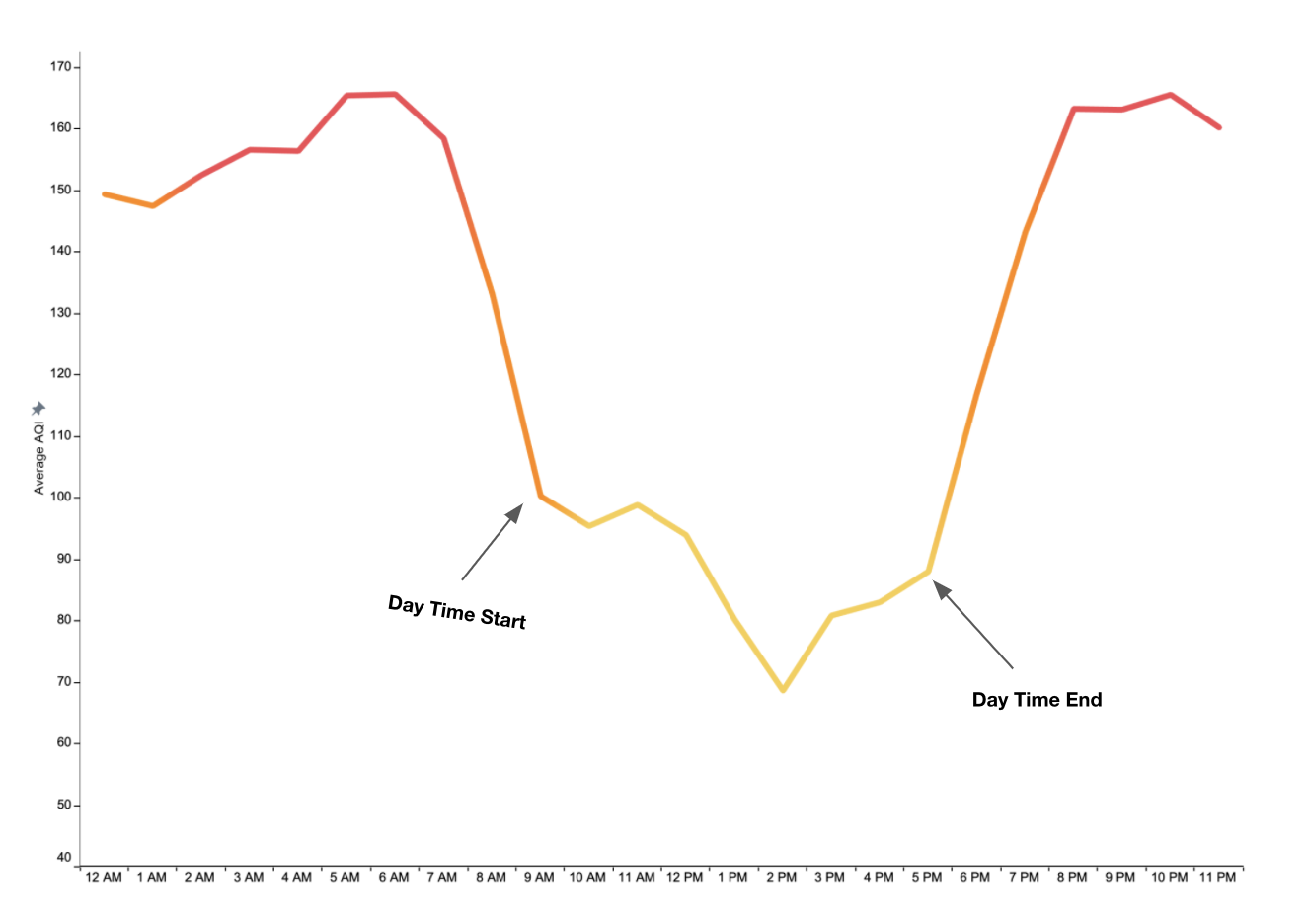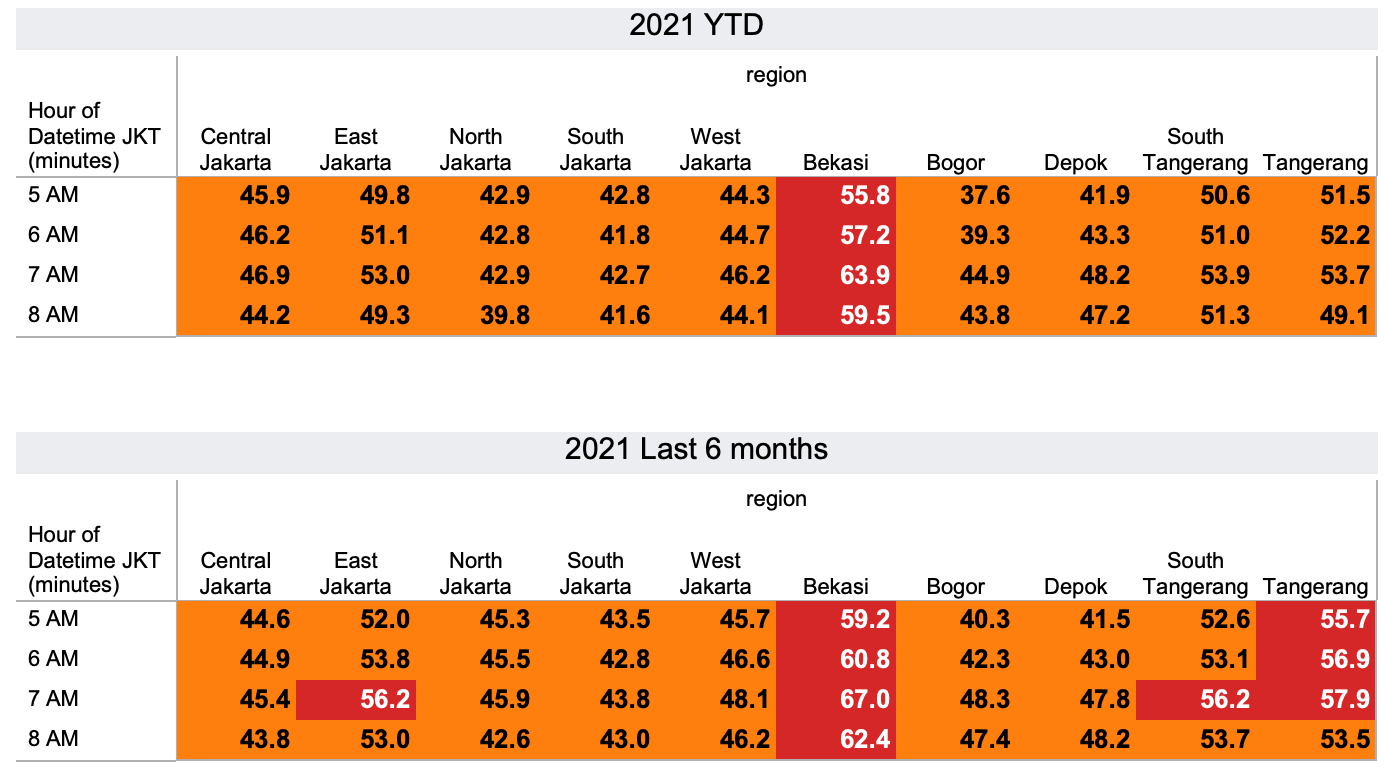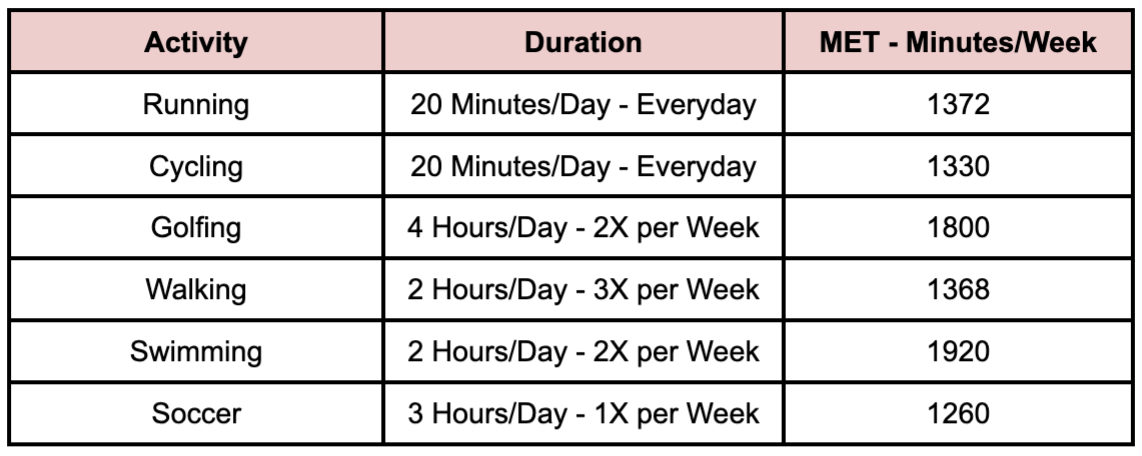Here is Why You Should Reschedule Your Morning Exercise
WRITTEN BY
Adriel Kosasih and Prabu Setyaji
PUBLISHED
21/01/2022
You’ve always scheduled your workout in the morning.
But is that the healthiest time to exercise in polluted cities like Jakarta and even Tangerang?
According to our findings, the ideal time to exercise is not in the morning. Most of the time, the average AQI in the morning is worse than any other time of day. What makes this possible? What makes the air quality worse in the morning than it is at other times of the day? Let’s take a look at what our Data Science team has found in the data below:

(Data was taken from our sensors in Surabaya on the 16th of December 2021)
The chart above shows the 24-hour average AQI. You can see that morning time is actually worse than any other time of the day. Even though at night air quality experiences a spike, the morning time is still higher on average.

Back to our data! This table shows that, on average, the morning air quality is in bad condition. We looked at the average PM2.5 levels at popular exercise times: 5 AM, 6 AM, 7 AM, and 8 AM and it turns out…
Air pollution on average is MUCH higher than the 26.46 ug/m3 level in the Seoul National University study. In fact, in Bekasi, it can be up to 3X higher!
Exercising in Air Pollution - Not Healthy!
Many studies have been published about the impact of exercise when the air quality is unhealthy. Most recently, the Seoul National University published a study, which highlighted that young adults aged 20-39 who like to exercise frequently and regularly (>1000 MET-minutes/week - for example running 20 minutes everyday) showed a 33% increased risk of Heart Disease when exercising above PM2.5 levels of 26.46 ug/m3. (You can read more about it here). Here are some examples of what 1000 MET activities could look like in a week.
1 The amount of physical activity in a week converted into units of metabolic equivalent task (MET) minutes per week. In other words, how often someone exercises in a week. The higher the number, the more active the person.

To calculate your MET click here.
To read more about the health impacts of exercise in high air pollution, click here.
So when should we exercise? When is the best time to exercise?
It depends!
Where you are, the time of day, and the current air pollution conditions all play a role in how healthy (or unhealthy) your activity can be.
That is why Nafas always recommends you to check the outdoor air quality first before doing any outdoor activities. You can also use our special alert feature to know when it's safe to engage in outdoor activities.
If the air quality is green and good, feel free to go outside, jog or bike around the city. If it is red and bad (or even worse), try to minimize it between 30-60 minutes or even just workout indoors at your home. By doing this, it can help you stay away from exercising in a polluted environment so you can work out peacefully and stay healthy.